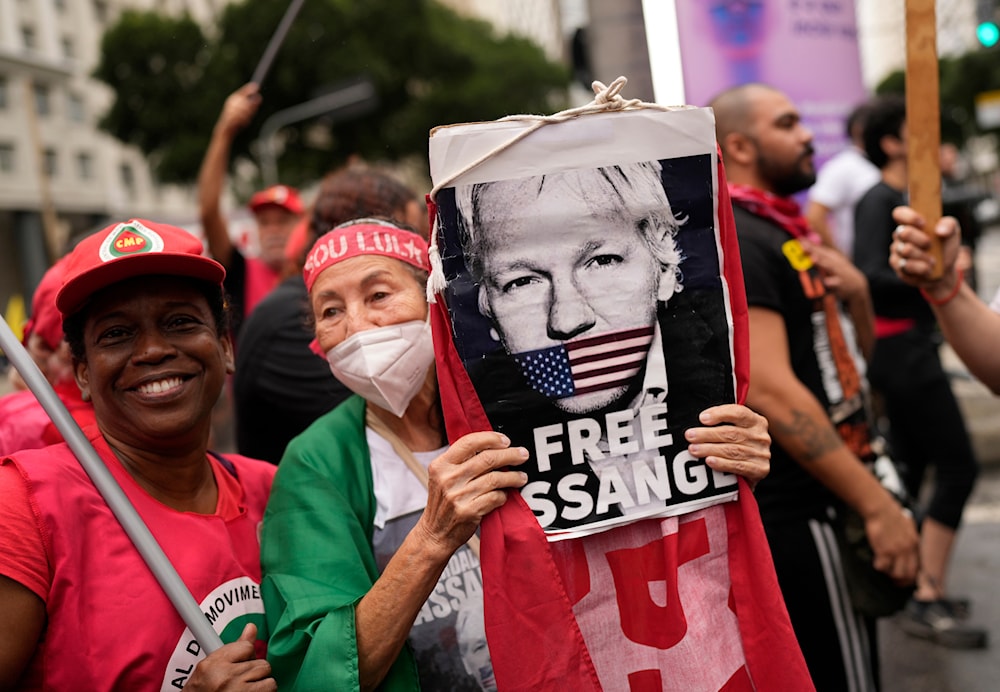Julian Assange's final appeal against US extradition due at end of Feb
WikiLeaks says that this “may be the final chance for Julian Assange to prevent his extradition to the United States,” which comes after a UK High Court judge rejected all eight grounds for his motion, supporting the 2020 extradition order.
-

A demonstrator with a sign of Julian Assange protests his extradition to the US in Rio de Janeiro, Brazil, Thursday, September 7, 2023. (AP)
According to a statement released by WikiLeaks, founder Julian Assange may have a final appeal against extradition to the United States at the UK High Court of Justice in London on February 20 and 21, as he faces 17 charges under the US Espionage Act and a potential 175-year prison sentence.
In its statement, WikiLeaks said that this “may be the final chance for Julian Assange to prevent his extradition to the United States,” which comes after a UK High Court judge rejected all eight grounds for his motion, supporting the 2020 extradition order.
The judge also refused to consider parts of the January 2021 ruling, which turned down Assange’s extradition due to concerns about risk of suicide and poor health.
Therefore, this possible final appeal is the last chance to fight extradition in the UK, leaving the next step for Assange’s lawyers to bring the case to the European Court of Human Rights.
Julian Assange's lawyer recently cited suicide as a possible outcome if the Australian is extradited to the #US on his espionage charges.
— Al Mayadeen English (@MayadeenEnglish) October 30, 2021
Here's a timeline of some key dates from Assange’s life.#JulianAssange #FreeAssange pic.twitter.com/FTSGibxwQO
Assange's wife, Stella, said, “With the myriad of evidence that has come to light since the original hearing in 2019, such as the violation of legal privilege and reports that senior US officials were involved in formulating assassination plots against my husband, there is no denying that a fair trial, let alone Julian’s safety on US soil, is an impossibility were he to be extradited. The persecution of this innocent journalist and publisher must end”.
Read next: Julian Assange’s life ‘in hands of Australian government’: Wife
'All means' necessary
Earlier in September, France denied asylum to Assange, and according to AFP, the Creteil court ruled that the conditions restricting Assange's freedom do not allow an exception to the French law requiring asylum seekers to be physically present in France or the EU.
In March, the Robin des Lois association called on France to "use all means" to allow Assange to apply for political asylum, despite the rule that asylum seekers must be physically present in France or the EU.
The association said it would not appeal the court's decision; however, it urged the French Justice Minister and Assange's former lawyer to "take up the matter."
In July, US Secretary of State Antony Blinken rejected Australia's demands to halt the pursuit of Assange, arguing that the WikiLeaks founder's alleged actions pose a serious national security risk.
Blinken acknowledged that Australia had raised Assange's case multiple times and understood the concerns of the Australian government. However, he emphasized that it was crucial for Australia to grasp the US' concerns about Assange's purported involvement in a significant compromise of classified information.

 3 Min Read
3 Min Read








